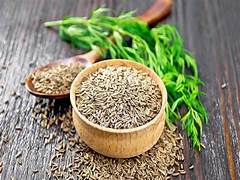In a pioneering effort at the ICAR-Central Arid Zone Research Institute, researchers have unveiled a groundbreaking microbial consortium aimed at revolutionizing the management of Fusarium wilt in cumin crops. This consortium, meticulously formulated with Trichoderma atrobruneum 15F, Pseudomonas sp. 2B, Bacillus amyloliquefaciens 9B, and Bacillus velezensis 32B, has showcased exceptional efficacy in controlling this debilitating disease, achieving an impressive 76.35% reduction in controlled pot experiments.
Fusarium wilt, caused by the soil-borne fungus Fusarium oxysporum, poses a persistent threat to cumin cultivation globally, leading to significant yield losses year after year. Traditional methods of disease management often involve chemical interventions that come with environmental repercussions and long-term sustainability concerns. In contrast, the microbial consortium developed by these researchers represents a paradigm shift towards eco-friendly and sustainable agricultural practices.
Beyond its remarkable disease control capabilities, the consortium has also demonstrated the ability to enhance the production of secondary metabolites and boost the activity of antioxidant-defense enzymes in cumin plants. These secondary metabolites play crucial roles in plant health and resilience, contributing to overall crop vigor and productivity.
Field trials conducted to validate the efficacy of this microbial solution further substantiated its potential, with a notable 72.2% disease control rate observed under real-world farming conditions compared to traditional control methods. This underscores not only the efficacy but also the practical applicability of the consortium in diverse agricultural settings.
The success of this research underscores the importance of microbial diversity in sustainable agriculture. By harnessing the synergistic interactions among different microbial species, researchers have unlocked a powerful tool for managing plant diseases while simultaneously promoting plant growth and health. This integrated approach not only mitigates disease risks but also supports the ecological balance of agricultural ecosystems.
Moreover, the study emphasizes a broader shift towards sustainable farming practices, aligning with global efforts to reduce reliance on synthetic chemicals and embrace natural solutions for crop protection. Such innovations not only safeguard agricultural livelihoods but also contribute to global food security by ensuring stable yields and reducing the environmental footprint of farming operations.
Looking forward, continued research and development in microbial consortia hold promise for addressing other crop diseases and optimizing agricultural productivity sustainably. By building on these findings and integrating insights from ongoing studies, scientists aim to refine and expand the application of microbial solutions across diverse agricultural landscapes.
The development of an efficient microbial consortium for managing Fusarium wilt in cumin crops marks a significant milestone in sustainable agriculture. It exemplifies how scientific innovation can pave the way towards resilient farming systems that balance productivity with environmental stewardship. As the world confronts mounting challenges in food production and climate resilience, such initiatives offer hope and inspiration for a sustainable agricultural future.
